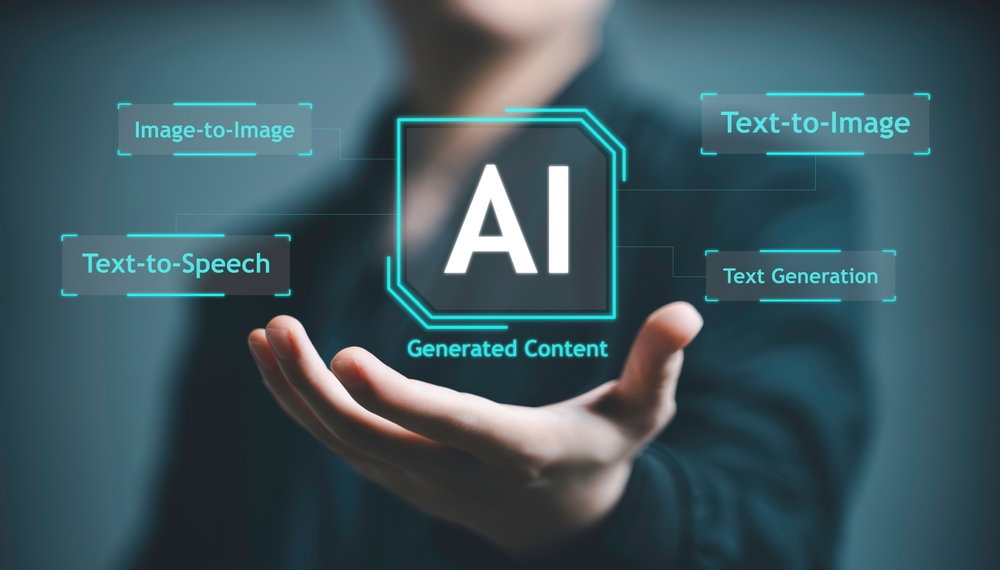In the ever-evolving digital landscape, the battle for supremacy in search engine rankings rages on. SEO, or Search Engine Optimization, has become a crucial aspect of online success. The power of words and content cannot be underestimated when it comes to ranking on Google. As the competition intensifies, two contenders have emerged as front-runners in content creation: Artificial Intelligence (AI) and human writers. With advancements in artificial intelligence (AI), the lines between AI-generated content and human-written content are blurring. Especially, the introduction of ChatGPT and an extensive number of other artificial intelligence (AI) solutions has rapidly made AI-generated content the hot topic of the SEO industry. In this article, we delve deep into the world of SEO to unmask the strategies, strengths, and limitations of these rivals.
The Rise of AI Content
AI has made remarkable strides in content creation. With algorithms that can generate text, identify trends, and optimize for search engines, AI has become a powerful tool for businesses seeking to dominate the digital space. Automated content generation tools like Chatgpt and Google Bard have the ability to produce vast quantities of text quickly and efficiently, making them invaluable for large-scale content strategies. However, there are some limitations in AI-generated content that only humans can address.
The Art of Human-Crafted Content
On the other side of the battlefield, we find human writers. The art of crafting content through human ingenuity, creativity, and emotional depth is something that AI struggles to replicate. Human writers bring a unique, personal touch to their work, infusing it with authenticity, empathy, and the ability to connect with readers on a profound level.
What does Google say about AI text?
In September 2021, Google had not issued any official statements specifically regarding AI-generated text, nor had they provided an official stance on how AI-generated content would be treated in their search algorithms. However, Google’s approach to AI-generated content can be inferred from its general guidelines and policies. So what are the guidelines that comply with Google policy and guarantee E-A-T?
- Quality Matters: Google’s primary focus has always been on delivering high-quality content to its users. Regardless of whether content is generated by AI or humans, Google’s algorithms aim to reward content that is valuable, informative, and relevant to users.
- Originality: Google has consistently emphasized the importance of original content. AI-generated content should not be scraped or duplicated from other sources, and it should provide unique insights or perspectives to be considered valuable.
- User Experience: Google prioritizes the user experience. Content, whether created by AI or humans, should be user-friendly, easy to read, and free from errors. It should provide a positive experience for those who visit the page.
- Transparency: While not specifically addressing AI-generated content, Google has encouraged website owners to be transparent about their content creation processes. This means being clear about whether content is generated by AI or human authors.
- Avoiding Spammy Practices: Google’s guidelines prohibit spammy practices such as keyword stuffing, link schemes, and other tactics designed to manipulate search rankings. These guidelines apply to all content, including that generated by AI.
- Evaluation and Adaptation: Google’s algorithms continuously evolve to adapt to changing web content. They are designed to learn and improve over time, and this includes understanding and evaluating different types of content, including AI-generated text.
Can AI-generated content rank well?
AI-generated content can indeed rank well in search engine results when it meets certain criteria and ensures it is valuable, unique, and meets E-E-A-T standards. I see the number of websites that generate AI content and also ranking on Google. Google’s algorithms aim to provide the best and most relevant content to users, regardless of whether it’s generated by AI or created by humans.
Here are some key factors that can help AI-generated content rank well:
- Quality and Relevance
- Keyword Optimization
- Originality
- User Experience
- Value-Added Information
- Monitoring and Improvement
- Ethical and Legal Considerations
- Transparency
- Backlinks and Promotion
It’s important to note that Google’s algorithms are constantly evolving, and they aim to understand the quality and intent of content more effectively. As such, the quality of AI-generated content is crucial. While AI can assist in content creation, it often requires human oversight to ensure the final product meets these criteria and offers real value to users. Ultimately, the success of AI-generated content in rankings depends on how well it aligns with these principles and best practices.
AI vs. Human Writers: A Head-to-Head Comparison
The Power of Keywords: AI’s Precision vs. Human Creativity
AI excels at keyword optimization. It can analyze search trends and integrate keywords seamlessly into content. This precision ensures that AI-generated content aligns with the latest SEO best practices. However, it may sometimes lack the creative finesse that human writers provide. Human writers, with their innate ability to understand context and convey emotions, have the upper hand in crafting content that engages readers on a personal level. They can adapt content to fit the SEO requirements while maintaining a human touch.
Quality and Originality: Human Writers Take the Lead
AI content often lacks the nuances of originality and creativity. While AI can generate text, it cannot truly innovate or produce unique perspectives. In contrast, human writers can infuse their work with fresh ideas, unique insights, and a voice that distinguishes one piece of content from another.
The Role of Engagement: Can AI Connect Emotionally?
Engagement is a critical factor in SEO success. Human writers are adept at creating content that connects with readers emotionally. They can tell stories, elicit empathy, and build trust, which AI-generated content sometimes struggles to achieve. The emotional connection readers feel can lead to longer on-page time and higher conversion rates.
Adapting to Trends: AI’s Agility vs. Human Insight
AI excels at tracking and adapting to trends. It can quickly identify emerging keywords and topics, enabling content to stay relevant. Human writers rely on their experience and intuition to anticipate trends, which can sometimes lead to more profound insights but may lag behind AI in terms of agility.
Trust and Credibility: The Human Touch
In the era of fake news and misinformation, trust and credibility are paramount. Readers often trust content produced by humans more readily. Human writers are responsible for fact-checking, ensuring accuracy, and maintaining ethical standards in content creation.
SEO Strategy: Blending AI and Human Expertise
The battle between AI and human writers is not a zero-sum game. The key to SEO dominance lies in blending the strengths of both. Utilizing AI for comprehensive keyword research, data analysis, and content generation can save time and resources. Human writers can then step in to refine the content, infuse it with authenticity, and ensure it resonates with the target audience.
SEO Ethics: The Responsibility of Content Creators
SEO is not just about ranking higher; it’s also about ethical content creation. Both AI and human writers bear the responsibility of creating content that is accurate, informative, and respectful of user privacy. Transparency in content creation and SEO practices is critical.
Frequently Asked Questions
Can AI-generated content really compete with human-written content in SEO rankings?
AI-generated content has made significant strides in SEO, particularly in terms of efficiency and keyword optimization. However, the ability to compete depends on the quality, originality, and user engagement provided by AI, which can still be surpassed by human writers in certain contexts.
How can I ensure that AI-generated content maintains a human touch and emotional engagement?
To infuse AI-generated content with a human touch, consider using human editors or content writers to review and refine the content. Adding personal anecdotes, storytelling, and unique insights can help create a stronger emotional connection with readers.
Are there specific types of content where AI outperforms human writers in SEO?
AI excels in generating data-driven, technical, or repetitive content, such as product descriptions or stock market reports. In these cases, AI’s precision and efficiency can give it an edge in SEO. However, for content that requires creativity, deep expertise, or a personal touch, human writers often perform better.
What’s the future outlook for the relationship between AI and human writers in SEO strategy?
The future of SEO is likely to involve a synergistic relationship between AI and human writers. AI will continue to streamline processes, while human writers will focus on crafting authentic, engaging, and emotionally resonant content. A balanced approach will be key to SEO success.
How can I detect AI content on websites, and why is this important for SEO?
Detecting AI-generated content is not always straightforward, but there are tools and techniques that can help. It’s important for SEO because transparency and trust are vital for user experience and credibility. Users and search engines alike value content authenticity, which is closely tied to SEO success.

